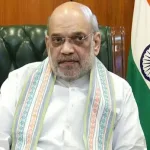For decades, Pakistan pursued its infamous doctrine of “bleeding India with a thousand cuts”, a strategy rooted in asymmetric warfare, terrorism, and proxy conflicts. But for the first time, India has responded not just in kind, but with a defining shift in its security doctrine: “Every act of terror will now be treated as an act of war.” This is not rhetoric, it’s a calibrated and resolute policy shift backed by strategic intent, advanced military preparedness, and political will. All this has been evident in last 5 days, the precision, accuracy and calculated actions has stunned the whole world especially when two nuclear states are at fight.
India has set the new threshold, “You fire a bullet, and we will respond with a bomb”, effectively dismantling the space for proxy war. India’s tolerance for provocation has been decisively lowered; there is now zero tolerance not just for major attacks but for even the smallest provocations.
Pakistan severely miscalculated this change in posture when it attempted yet another cross-border adventurism, targeting strategic assets in the Sirsa sector. Whether the target was Delhi or it was a trial for something else, only further investigations will reveal, but this time, it certainly has walked into a trap. The Indian response was not only swift but deeply punishing. In a matter of hours, the Indian Armed Forces launched a pre-emptive precision strike that crippled multiple Pakistani airbases, including significant damage to Noor Khan Airbase, the operational hub near Rawalpindi.
With the Indian air attack destroying airbases and Pakistan’s layered defence systems, the country is now a sitting duck, vulnerable to any future offensive and complete destruction. Defence analysts suggest that a catastrophic event may have been triggered during these attacks by India, with potential risk to the larger geographical area surrounding key military installations. The extent of internal damage is yet to be fully assessed, but the strategic consequences are massive. That is why many have reported the entry of US energy department in Pakistan and Egypt supplying boron.
In this precarious scenario, it is the wisdom and humane leadership of Prime Minister Narendra Modi that has chosen restraint in the face of overwhelming advantage. Responding to international appeals and backchannel requests, he agreed to a cessation of hostilities, underscoring that India’s objective was not destruction but deterrence, to destroy terror camps, to teach a harsh lesson and to deliver a clear warning for the future. Pakistan and its citizens must be thankful for this magnanimity, for had the operations continued, the results would have been irreversible.
Intelligence and satellite imagery confirmed the extent of destruction, runways disabled, critical hangars flattened, radar systems rendered blind, and command centres silenced. This proactive and pre-emptive strategy ensured India retained escalation dominance without entering full-scale war.
The cost inflicted is unprecedented. Defence experts estimate that the infrastructural and operational setback will take Pakistan nearly 50 years to recover from, if at all. The economic implications, given Pakistan’s already fragile economy and IMF dependency, are catastrophic.
This is a turning point in India’s geopolitical standing. In these five historic days, India has emerged as a natural regional superpower. Its clarity of intent, synchrony between political leadership, defence forces, and intelligence agencies and use of cutting-edge indigenous technology has sent a strong message not only to Pakistan but also to other actors like China.
The world has taken notice. Global diplomatic circles are recalibrating their understanding of India’s new assertiveness. No longer is India a reactive nation, it is now a proactive, strategic power, capable of shaping outcomes rather than merely responding to events.
Full credit must be given to the Prime Minister, Defence Minister, National Security Advisor, Chiefs of the Armed Forces, and the extended defence and intelligence ecosystem. They have demonstrated what a modern, decisive leadership looks like in the face of long-standing threats.
The narratives being spun by adversaries or sympathizers are irrelevant. India has created history. What was once tolerated will now be neutralized. The paradigm has shifted and it is here to stay.
Jai Hind
(The Author is OSD to CM Haryana)








